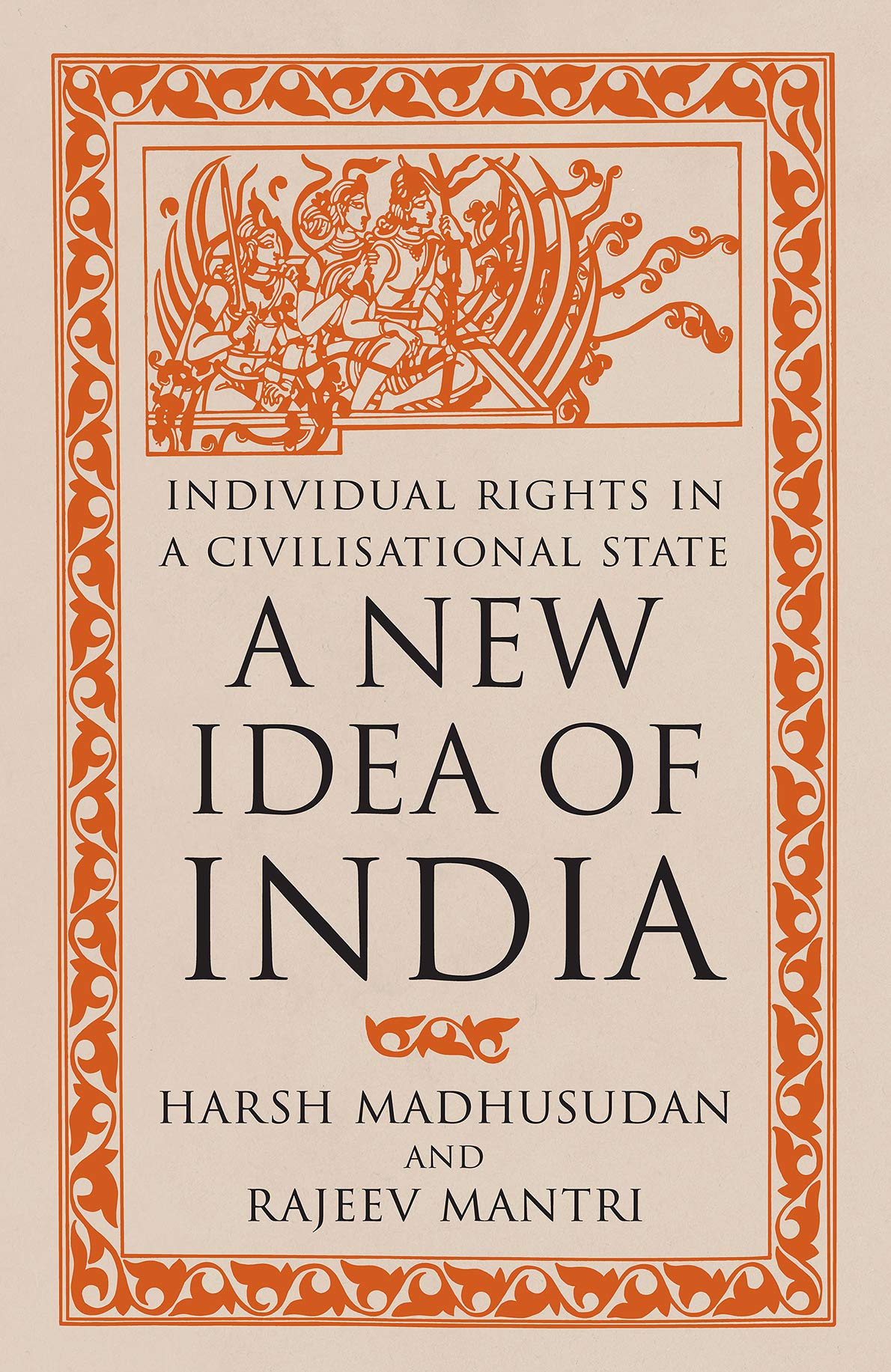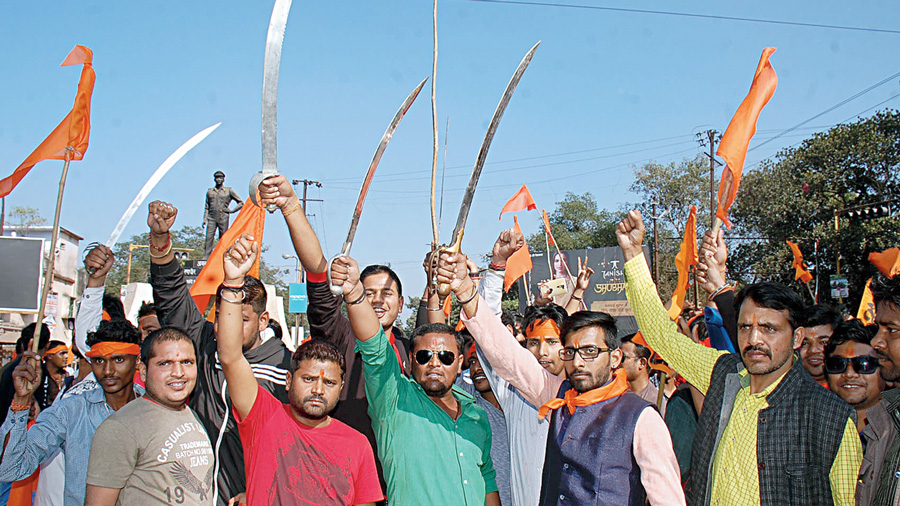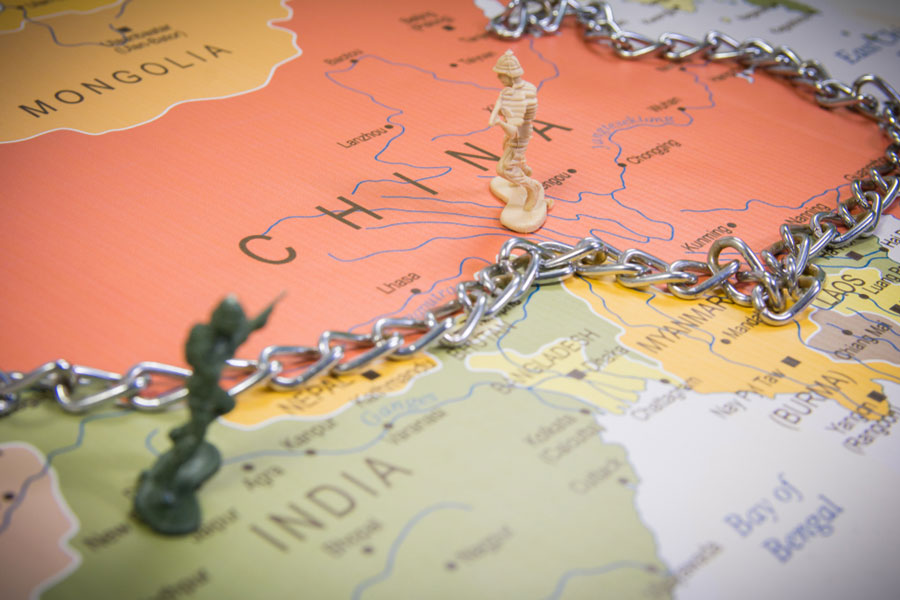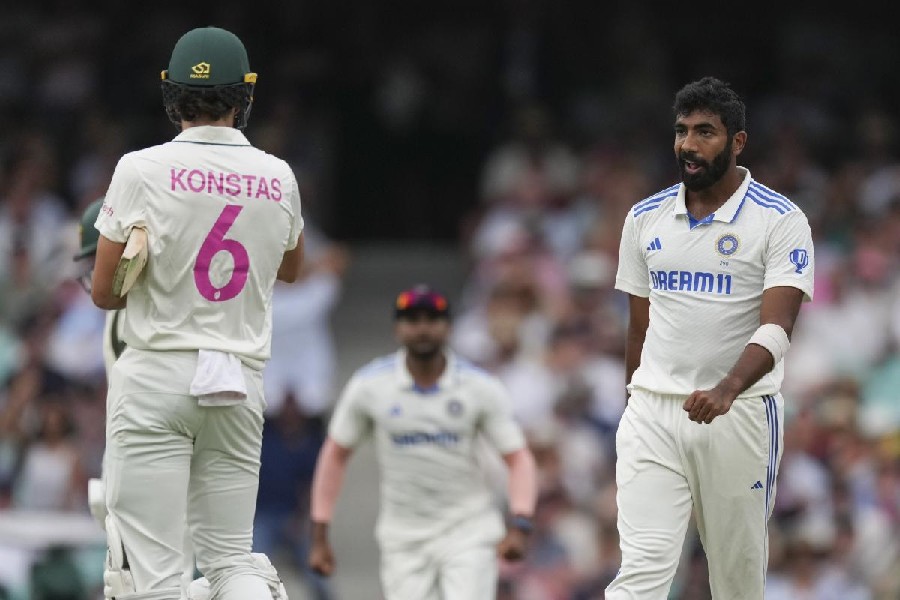Book: A New Idea of India: Individual Rights in a Civilisational State
Author: Harsh Madhusudan and Rajeev Mantri
Publisher: Westland
Price: Rs 799
Who says that there can only be one Idea of India? When India has come to be ruled by a distinctly new Hindutva political force with an unhidden agenda of turning it into a Hindu rashtra, the arrival of a book, pompously titled A New Idea of India, was only to be expected. The authors, Harsh Madhusudan and Rajeev Mantri, score poorly in challenging the ‘old’ idea of our nation, which found its most crystallized articulation in the mainstream of India’s freedom movement and, subsequently, in the Constitution. The votaries of India as a Hindu nation — a concept emphatically rejected by Mahatma Gandhi, Jawaharlal Nehru, B.R. Ambedkar and the other leading lights of that era — had played a marginal role in both phases of our nation’s journey. However, Narendra Modi’s two electoral victories in 2014 and 2019 have emboldened them to embark on a project aimed at changing the basic character of India. The project is ambitious. But the ideation is flawed.
The most serious defect in this ‘New Idea of India’ lies in the authors’ argument — captured in the book’s subtitle, “Individual Rights in a Civilisational State” — that the State should ignore and erase all collective identities in pluralist India and legitimize only one that identifies them as “individuals”. They say, “India must transcend the hitherto dominant ‘idea of India’, where the State sees people as members of (different and often warring) groups and not as individual citizens first”. The “government should not see Indians as Hindus, Muslims, Christians and so on, and crucially, that it should not force an individual to self-identify as belonging to a particular group”. This may sound unobjectionable, but there is an ideological trick here in favour of Hindu rashtra. If India becomes a ‘Hindu nation’, or is already a ‘Hindu nation’ as the book claims, the State axiomatically has to identify every individual Indian as a ‘Hindu’. Hasn’t the chief of the Rashtriya Swayamsevak Sangh, Mohan Bhagwat, repeatedly stated that “Hindutva is a cultural and civilizational ideology and everybody living in India should consider himself a Hindu”? When the authors sermonize that “the State must not discriminate based on identity”, they are, in effect, saying that the Indian State must recognize only the Hindu identity.

A New Idea of India: Individual Rights in a Civilisational State by Harsh Madhusudan and Rajeev Mantri, Westland, Rs 799 Amazon
A strong anti-Muslim, anti-Christian and anti-Congress prejudice prompts the authors — they are admirers of V.D. Savarkar — to make some outlandish accusations. “For a long time now, the Congress party and the ‘secular’ intellectual establishment has been championing a softer form of Islamic separatism.” On the systematic political disempowerment of Muslims during Modi’s rule, they justify the Bharatiya Janata Party “not fielding Muslim candidates” even “in Muslim-dominated constituencies” and argue that such an insistence is “akin to Jinnah’s demand for separate electorates.” Here is their most egregious assertion — “After large parts of India were ruled by Turkic-Muslims and European-Christians for more than seven centuries, we won independence in 1947, symbolically breaking with not just the colonial power, Great Britain, but also with the claimant of the Mughal legacy, the Islamic nation of Pakistan.” The falsehood that India won “independence from Pakistan” in 1947 is simply the mirror image of Pakistani Islamists’ jubilant declaration that they won “independence from Hindu India”. Similarly, the authors’ claim that “India and Pakistan undoubtedly represent two civilisations” is indistinguishable from the Muslim League’s toxic ‘Two Nation’ theory. How does this claim square with the pre-Independence demand of the RSS for ‘Akhand Bharat’? The book does not bother to answer this inconvenient question. Yet, it gives the Modi government a ludicrous suggestion on how to bring ‘Sindh’ into India — “While the national anthem mentions an area called ‘Sindh’, today India doesn’t have any such region. India should consider declaring some border districts of Gujarat and Rajasthan as Sindh (perhaps as a union territory).”
The book is also marred by the authors’ flippancy when they attempt to show India’s civilizational superiority over other nations. What is the Idea of Russia? It is “probably order — yes, with a lot of rum and vodka”. For Sri Lanka? It “might be that victory in the Cricket World Cup”.
The authors make some persuasive arguments when they question ‘secularism’ as practised by successive Congress and other non-BJP governments. The examples are as follows: how the provision of ‘minority educational institutions’ discriminates against their non-minority counterparts; how, in the Shah Bano case of 1985, Rajiv Gandhi “used his brute parliamentary supermajority to overturn a Supreme Court judgment”; and how the repulsive demand for religion-based census in the armed forces gained some currency during the United Progressive Alliance’s rule before it was dropped due to stiff opposition. These parts of the book should make the Congress, badly mauled in two consecutive elections, introspect on how it ended up contributing to the BJP’s success in creating a divisive “Hindu political consciousness” — a euphemism for a Hindu vote bank.
For all their denunciation of the Congress and the Left, the authors are extremely timid when it comes to examining the questionable deeds of Modi and his party. In the section on ‘Who Judges the Judges’, they maintain a deafening silence on how the government is allegedly manipulating the higher judiciary. While rightly lauding the ‘dharmic’ soul of our civilization, they choose to not critique the many adharmic ways of governance. They slam Nehru for not agreeing to “unrestricted, absolute freedom of expression” but they do not utter a word of protest against the BJP government’s many fear-inducing restrictions on the freedom of the media and citizens with Modi’s supporters maligning ‘violators’ as ‘anti-national’.
India needs a more honest synthesis of ideas and ideals about who we are and what we should become as a nation.











